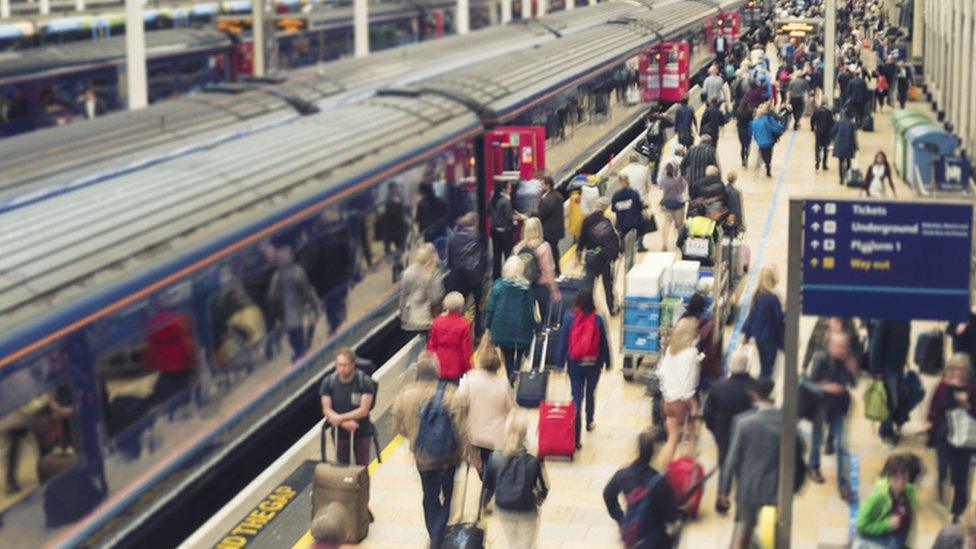Trains: Plans for new London-west Wales services approved
- Published
- comments
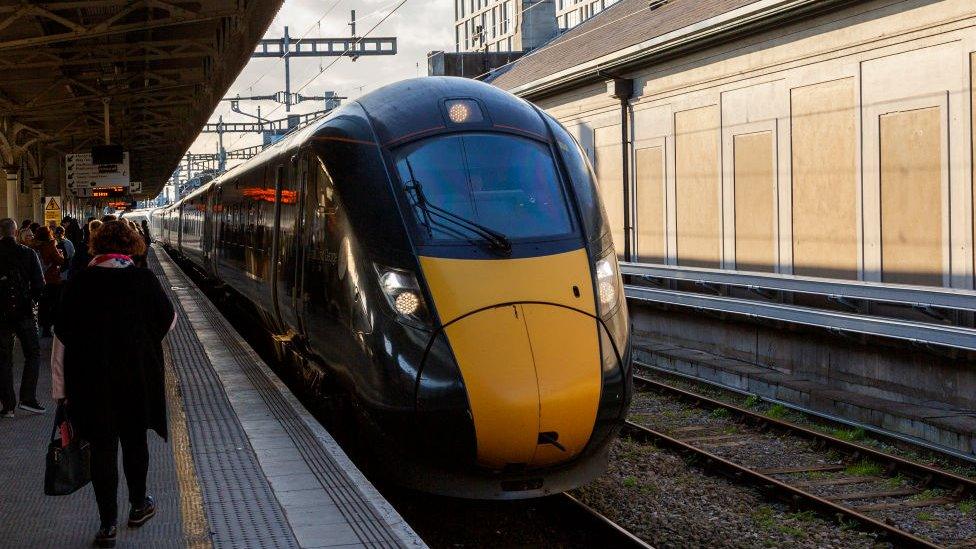
Great Western Railway currently operates trains between London Paddington and south west Wales
Plans for a new rail service from south west Wales to London have been approved by an industry regulator.
The new service will start running from the end of 2024, and allow for a significant increase in services, the Office of Rail and Road (ORR) said.
Grand Union Trains plans to operate five daily return services between Carmarthen and London Paddington.
The decision opens up the route to competition for the first time, potentially bringing lower fares.
Director of Strategy, Policy and Reform at ORR, Stephanie Tobyn said: "This decision supports more choice for passengers, new direct journey opportunities, more price competition, and new comfortable trains.
"The added competition should also make a significant contribution to innovation in terms of the routes served, ticketing practices and service quality improvements, by both Grand Union and through the response of existing operators."
Trains will also call at Bristol Parkway, Severn Tunnel Junction, Newport, Cardiff, Gowerton and Llanelli stations.
Currently the route is operated by Great Western Railway.
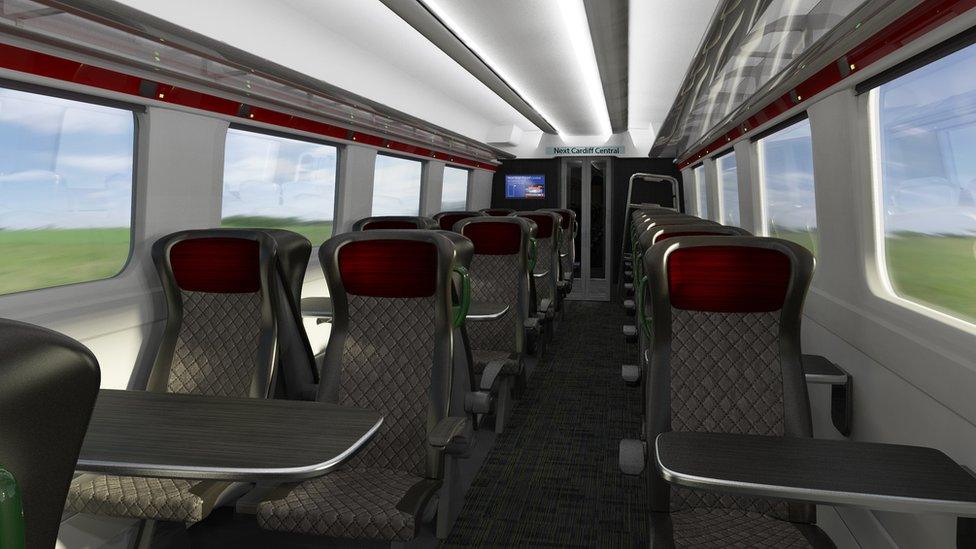
Grand Union Trains says passengers will have bigger seats with more legroom
The approved plans also include a commitment by Grand Union Trains to build a new "parkway" station at Felindre, north of Swansea, which would reduce journey times from Carmarthen and Llanelli to Cardiff and onto London by around 20 minutes.
Grand Unions Trains managing director Ian Yeowart said the operator may have to use the line through Gowerton and Swansea for the first few years until the new station at Felindre, near junction 46 of the M4, is built.
"But Swansea City Council and Carmarthenshire council are supportive of the new station.
"The challenge will be to get the station built and the new trains built but there is every possibility of this happening," Mr Yeowart said.
"We would expect to start in December 2024 and be fully operational well in to 2025. But this is great news for south Wales."
Grand Union Trains has also said it plans to upgrade facilities and improve access at Severn Tunnel Junction station.

Ceri Thomas uses the train to visit family
Ceri Thomas, 57, from Neath, Port Talbot, welcomed any competition on the line that might bring down the price of train fares.
"And if it's going to give better service, and also it's electric, that's the way forward," she added.
"We're all looking at prices at the end of the day."
Andrii Zhuravskyi, 23, from Cardiff agreed lower fares would be welcome.

Andrii Zhuravskyi says currently travelling to London means either an expensive train ticket or a long coach journey
"I don't know what the prices are going to be but one of the biggest problems that I've seen in the UK while I've been here is that trains are very expensive," he said.
"I've heard various reasons as to why that is the case but being able to get a plane to Poland or to the Netherlands and have a return that is cheaper than a return [from London] to Cardiff is very weird."
Grand Union Trains' application was disputed by infrastructure company Network Rail due to concerns about capacity on the network.
But the regulator said that, after "careful consideration and analysis", it had directed Network Rail to enter into a contract with the operator.
A fleet of new bi-mode trains powered by electricity or diesel will be used.
Passengers will benefit from "best experience in the market" with bigger seats, more legroom, increased luggage space and a buffet car on every service, according to Grand Union Trains.
The project is being developed in partnership with European investment company Serena Industrial Partners and Spanish train operator Renfe.
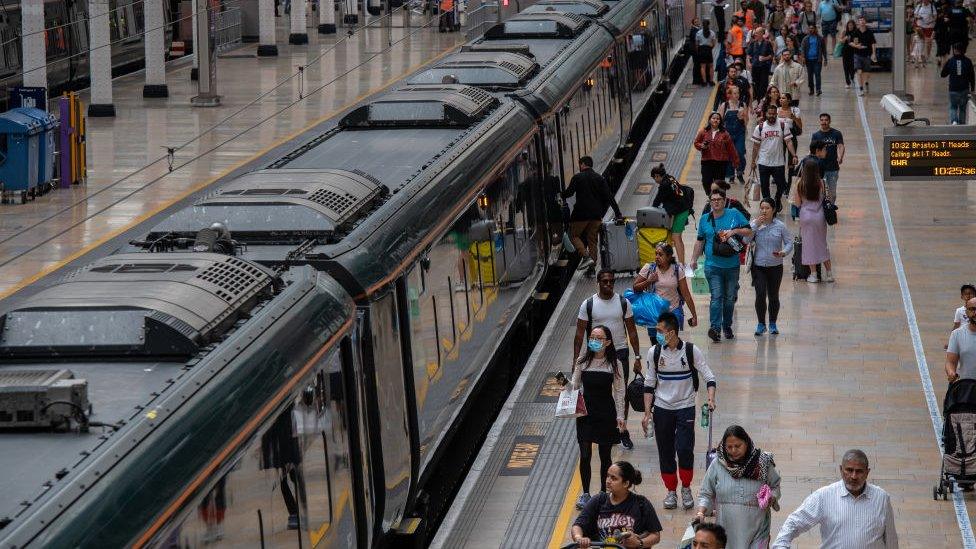
The new service will run from London Paddington to Carmarthen
Grand Union Trains will be an open access operator which means it will not receive subsidies from public funds.
The government issues contracts for most train services on Britain's railways.
The four existing open access operators are Grand Central, which runs trains from Bradford and Sunderland to London King's Cross; Heathrow Express which runs between Heathrow Airport and London Paddington; Hull Trains, which runs services from Hull/Beverly to London King's Cross and Lumo, which operates on the line between London King's Cross and Edinburgh Waverley.


Related topics
- Published11 February 2021
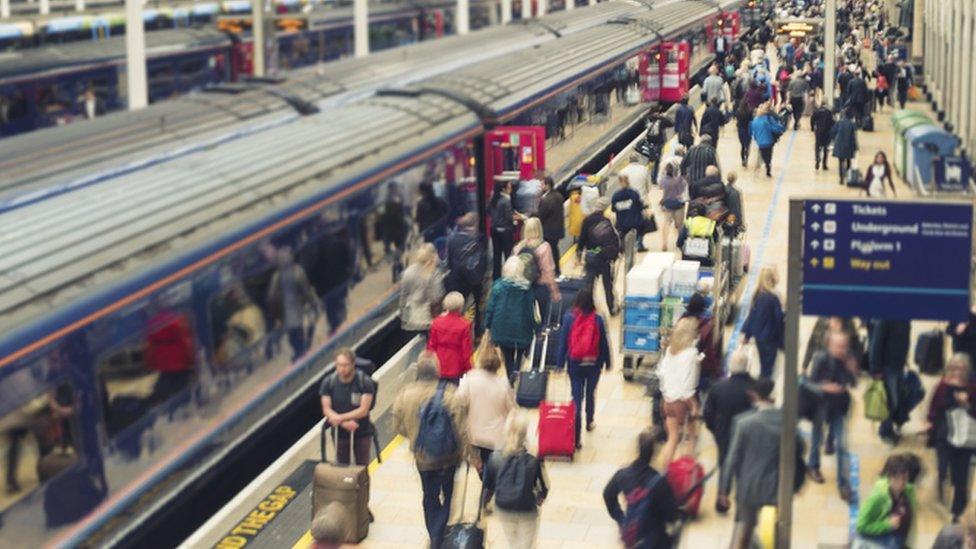
- Published15 June 2019
